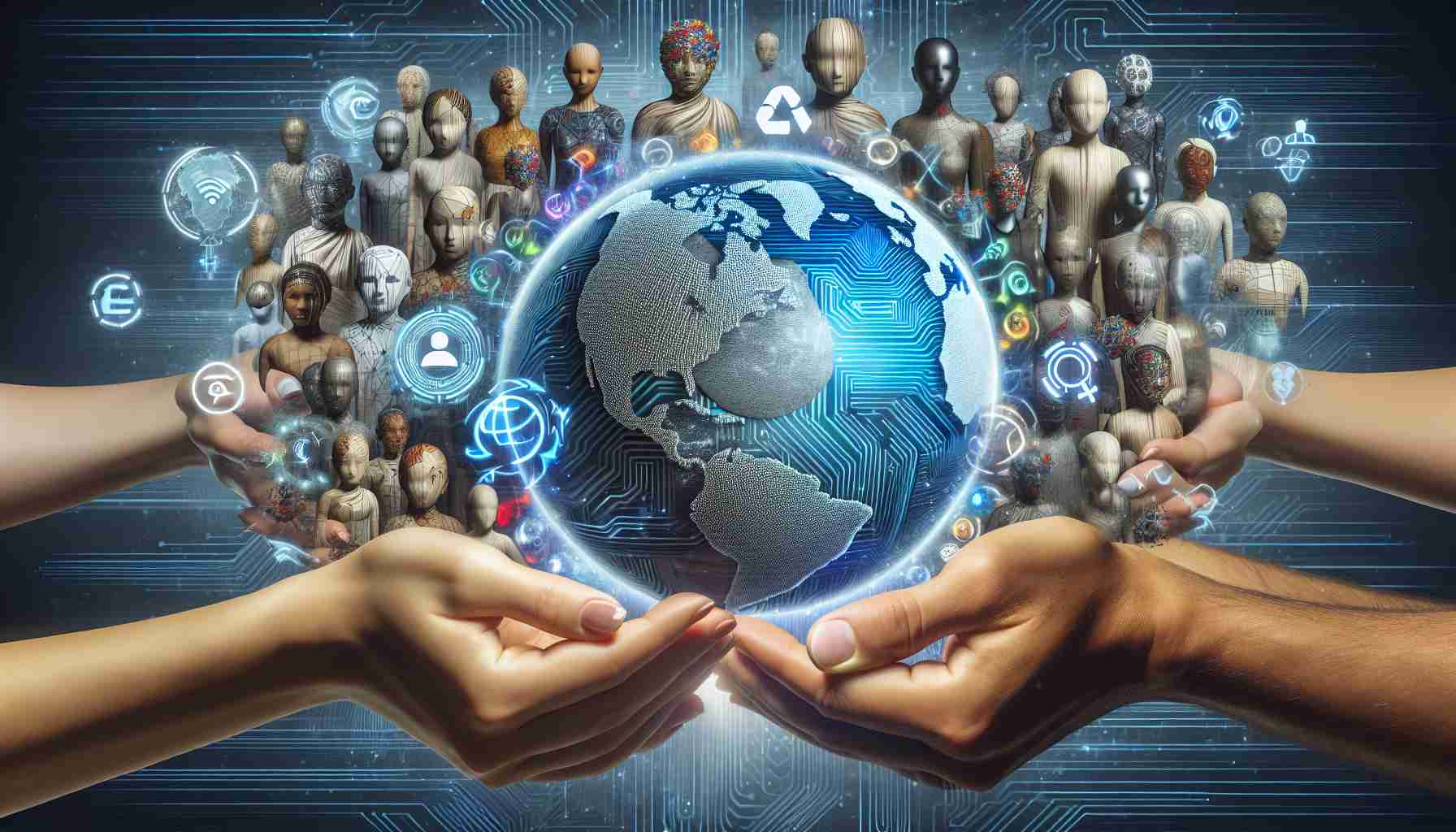In a historic development, the United Nations General Assembly has unanimously passed a groundbreaking resolution on artificial intelligence (AI). The resolution represents a global effort to ensure that AI technology is utilized to benefit all nations, while upholding human rights and prioritizing safety and trustworthiness.
Spearheaded by the United States and co-sponsored by 123 countries, including China, this resolution marks the first-ever international consensus on the ethical use of AI. It signifies a collective recognition of the potential of AI in shaping a better future for humanity, while emphasizing the need for responsible practices.
The resolution promotes several key principles for the ethical implementation of AI. First and foremost, it emphasizes the importance of ensuring the technology’s accessibility to all nations. By doing so, it seeks to bridge the digital divide and prevent unfair disparities in AI adoption and development.
Moreover, the resolution highlights the imperative of safeguarding human rights in the design and deployment of AI systems. It calls for AI development to be rooted in respect for fundamental freedoms, including privacy, non-discrimination, and autonomy. This provision seeks to prevent any potential misuse or infringement on individuals’ rights that could arise from AI applications.
Another crucial aspect addressed in the resolution is the need for AI to be safe, secure, and trustworthy. This implies that AI technologies should undergo rigorous testing and validation to minimize risks and vulnerabilities. Furthermore, it calls for transparency in AI systems, allowing individuals to understand the decisions made by AI algorithms.
With the unanimous approval of this resolution, the international community is now firmly committed to advancing the responsible use of AI. However, it is important to recognize that the resolution alone will not guarantee universal compliance. Close collaboration between governments, policymakers, and technology experts will be essential in translating these principles into actionable policies and practices.
FAQs
Q: What is artificial intelligence (AI)?
A: Artificial intelligence refers to the development of computer systems that can perform tasks that typically require human intelligence, such as visual perception, speech recognition, and decision-making.
Q: Why is it important to have an international resolution on AI?
A: An international resolution on AI is crucial to establish a global framework for the responsible and ethical use of this powerful technology. It helps ensure that AI benefits all nations, respects human rights, and prioritizes safety and trustworthiness.
Q: How does the resolution address the concerns related to human rights?
A: The resolution emphasizes the importance of protecting human rights in the design and deployment of AI systems. It calls for AI to be developed in a manner that respects privacy, non-discrimination, and autonomy, preventing potential misuse or infringement on individuals’ rights.
Q: What does it mean for AI to be “safe, secure, and trustworthy”?
A: When AI is deemed safe, secure, and trustworthy, it means that the technology has undergone thorough testing and validation to minimize risks and vulnerabilities. Additionally, it requires transparency in AI systems, enabling individuals to understand the decisions made by AI algorithms.
Sources:
– United Nations: [un.org](https://www.un.org)
– The New York Times: [nytimes.com](https://www.nytimes.com)
The passage of the groundbreaking resolution on artificial intelligence (AI) by the United Nations General Assembly has significant implications for the industry. The resolution represents a global effort to ensure that AI technology is used ethically and responsibly, benefiting all nations while upholding human rights and prioritizing safety and trustworthiness. This international consensus on the ethical use of AI is a historic development and signifies the collective recognition of the potential of AI in shaping a better future for humanity. It also underscores the need for responsible practices in AI implementation.
The resolution promotes several key principles for the ethical implementation of AI. One crucial aspect is ensuring accessibility to AI technology for all nations, aiming to bridge the digital divide and prevent unfair disparities in adoption and development. This highlights the importance of inclusivity and equal opportunities in harnessing the potential of AI.
Another key principle is the emphasis on safeguarding human rights in AI systems. The resolution calls for AI development to be rooted in respect for fundamental freedoms, such as privacy, non-discrimination, and autonomy. This is essential to prevent any potential misuse or infringement on individuals’ rights that could arise from AI applications.
The resolution also highlights the need for AI to be safe, secure, and trustworthy. This implies rigorous testing and validation of AI technologies to minimize risks and vulnerabilities. Transparency in AI systems is also emphasized, allowing individuals to understand the decisions made by AI algorithms. This transparency fosters accountability and builds trust in AI technologies.
While the unanimous approval of the resolution is a significant step, it is important to recognize that it alone will not guarantee universal compliance. Close collaboration between governments, policymakers, and technology experts will be essential in translating these principles into actionable policies and practices. Ongoing discussions and cooperation at national and international levels will be necessary to effectively implement the ethical use of AI.
For more information on the United Nations and their work, visit their official website at un.org. Additional insights on AI and its impact can be found on reputable news sources like The New York Times at nytimes.com.
The source of the article is from the blog girabetim.com.br

